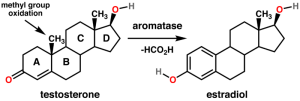If you are a male over 30 years you are more likely to experience at least one of these low testosterone symptoms.
Older men tend to have lower testosterone levels but low testosterone symptoms can happen at any age and at Revive Low T Clinic we help men determine if low testosterone may be the cause or not.
Men with low testosterone typically experience at least one of the following low t symptoms:
- “Tired all the time” or reduced energy
- “The couch is calling” or lack of motivation
- Loss of muscle mass or reduced work out recovery
- Difficulty getting or maintaining erections
- Decrease in sexual desire/libido (lacking pleasure in sex, lacking desire for sexual intercourse)
- Less body hair or less need to shave
- Low mood or feeling of “blah”
- More body fat, especially around the waist
- Increase in breast tissue
- Decreased bone density or strength
These symptoms can also be caused by other diseases or unrelated to your testosterone level. However, research is now showing that some health issues, such as obesity, may be a low testosterone symptom.
Some other potential low testosterone symptoms include:
- Decline in your feeling of general well-being (general sense of wellness)
- Joint pain and muscular ache (lower back pain, joint pain, pain in a limb, general back ache)
- Excessive sweating (unexpected/sudden episodes of sweating, hot flashes)
- Sleep problems (difficulty in falling asleep, restless sleep, waking up early and feeling tired, poor sleep, sleeplessness)
- Increased need for sleep, often feeling tired, the “couch is calling”
- Irritability (feeling aggressive, easily upset about little things, moody)
- Nervousness (inner tension, restlessness, feeling fidgety)
- Anxiety (feeling panicky)
- Physical exhaustion / lacking vitality (general decrease in performance, reduced activity, lacking interest in leisure activities, feeling of getting less done, of achieving less, of having to force oneself to undertake activities)
- Decrease in muscular strength (feeling of weakness, feeling frail)
- Depressive mood (feeling down, sad, on the verge of tears, lack of drive, mood swings, feeling nothing is of any use)
- Feeling that you have passed your peak
- Feeling burnt out, having hit rock-bottom
- Decrease in beard growth
- Decrease in ability/frequency to perform sexually, difficulty ejaculating
- Decrease in the number of morning erections
Obesity is an epidemic in the United States with 1 in 3 people being obese. Many obese men have low testosterone levels and increased estrogen levels. The enzyme in your body that converts testosterone can become concentrated in fatty tissue.

Testosterone converts to estrogen via the aromatase enzyme.
Excess body fat can become a feminizing organ in your body that drains you of your testosterone by converting it into estrogen. Most men are unaware of the risks associated with high estrogen levels, such as prostate cancer and strokes.
As men age testosterone tends to decline and estrogen tends to increase. This change in the testosterone to estrogen ratio is associated with an increased risk of a number of diseases. Prostate cancer risk is more associated with increased estrogen or a poor testosterone to estrogen ratio.
You are probably wanting to stay in touch with your masculine side as you age and maintaining a healthy testosterone level can be an important aspect. At Revive Low T Clinic we monitor both your testosterone and estrogen levels during treatment.
